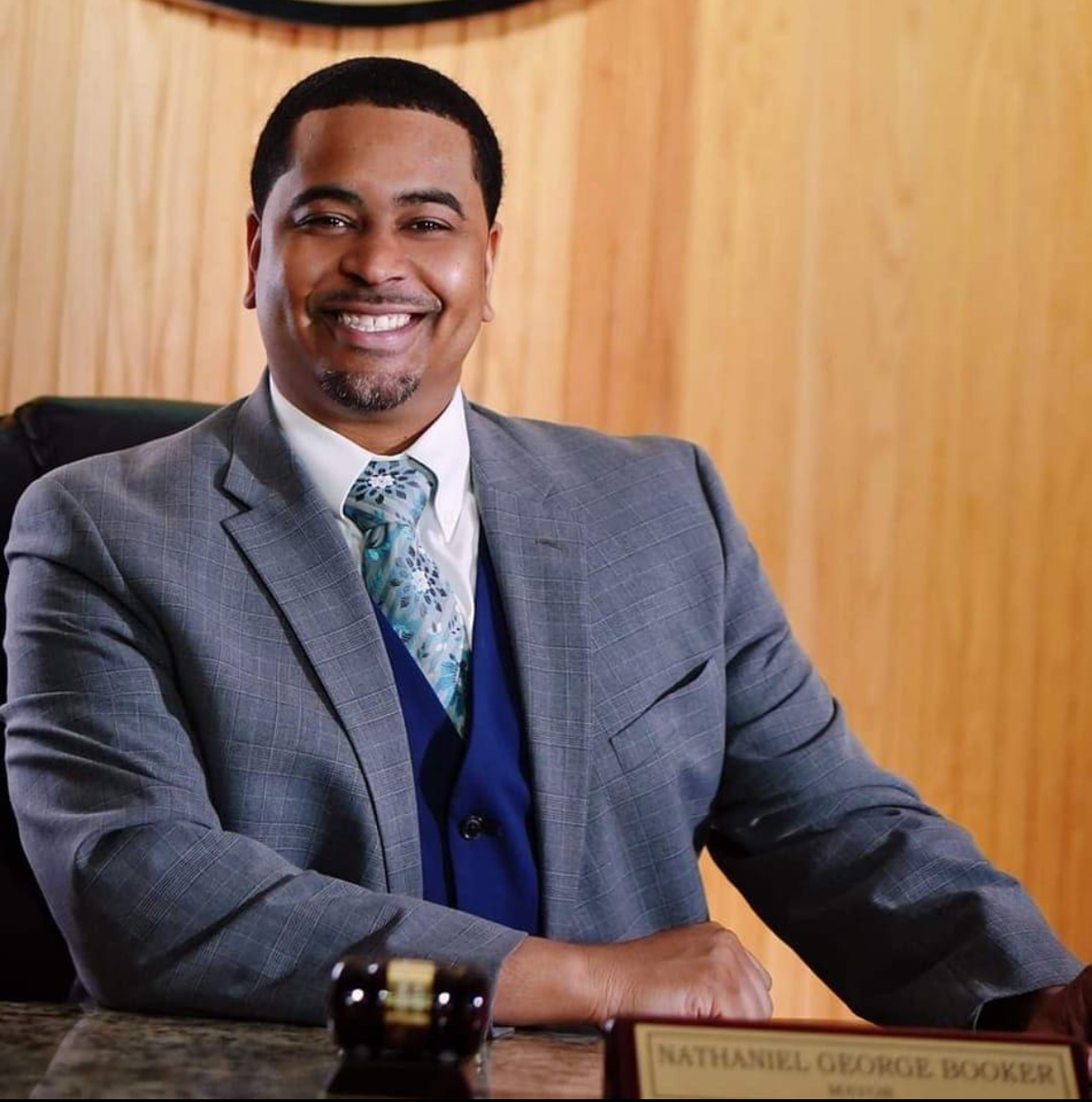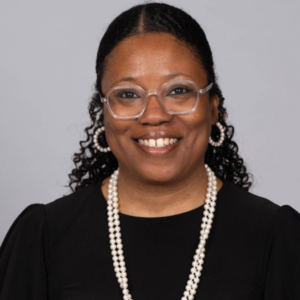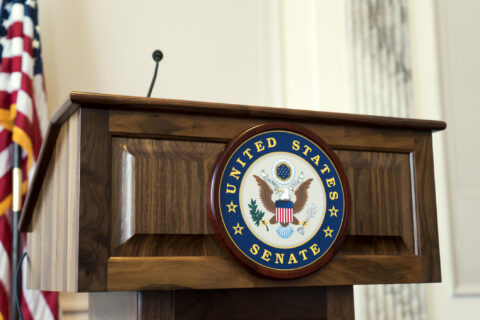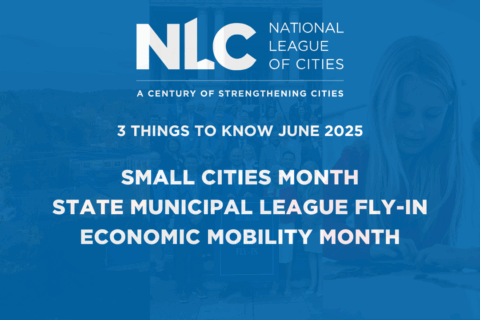Every year, residents across the country lose their homes because they are unable to pay the rising property taxes in many cities. Mayor Nathaniel George Booker of Maywood, IL, understands the critical importance of tackling late property taxes to stabilize homeownership for residents. Accordingly, Mayor Booker is receiving technical assistance and grant funding through NLC’s Cities Addressing Fines and Fees Equitably (CAFFE) initiative to develop a robust housing initiative with a focus on delinquent property taxes. Mayor Booker sat down with National League of Cities Program Manager of Economic Opportunity and Financial Empowerment Chanell Hasty to describe the program.

Chanell Hasty: Thank you, Mayor Booker, for taking the time to share Maywood’s new housing strategy with NLC. Can you begin detailing the initiative?
Mayor Nathaniel George Booker: Maywood’s housing initiative has four components: homeownership; financial literacy; tax redemption; and property tax error funds.
Let us start with the homeownership component. Maywood has the highest property taxes in the Cook County western suburbs, which has been attributed to many second and third generation Black homeowners losing their homes. My office made two vital partnerships with Cook County Land Bank Executive Director Jessica Caffrey and her team and Cook Country Treasurer Maria Pappas. We worked with the Cook County Land Bank to gather a list of the vacant homes lost to annual property taxes on the county scavenger list, clean up the property taxes on those homes, and get them ready for sale. Then, we worked with the Cook County Treasurer’s Office to compile a list of eligible Black residents from data gathered on homes that were Black-owned 20 years ago who are: 1) renters as a result of losing their homes; or 2) general first-time homebuyers.
This leads us to the financial literacy component, which has been greatly influenced by NLC’s CAFFE Initiative, of which financial coaching is a requirement. My office has partnered with Liberty Bank, the nation’s largest Black-owned bank, to work with eligible Black residents on the County Treasurer’s list to provide financial literacy, home readiness and credit repair. We even have realtors working with these residents to assist them with buying Cook County Land Bank prepared properties.
The other piece of Maywood’s housing initiative focuses on homes where people are at risk of losing them due to late property taxes, or tax redemption. My office is working with Assessor Fritz Kaegi and his Cook County Assessor’s Office team to help veterans and senior residents apply for property tax redemptions dating as far back as three years, along with working with Cook County Clerk Karen Yarbrough and her team to address property redemptions.
Lastly, for the property tax errors component of Maywood’s housing initiative, we are teaming up with the Cook County Treasurer’s Office again through the Black Homes Matter Program, to make sure homeowners are receiving their proper refunds after their homes are assessed.
CH: How will this initiative positively impact the housing crisis in your community?
NGB: My biggest frustration is that all property tax programs that have rolled out on a state and federal level focused only on rental or mortgage assistance. For instance, a resident can only get assistance if property taxes are attached to a mortgage. My office is working with the Cook County Treasurer’s Office use some of Maywood’s American Rescue Plan Act funds to establish a senior homeowner tax assistance program for those who do not qualify for state or county aid.
CH: Do you plan to scale this great program to other communities?
NGB: Absolutely! Cook County is using the Maywood housing program as a pilot due to its large amount of data. I want to scale up this pilot for every disadvantaged community! We are first waiting to see how the partnership with Liberty Bank pans out, and secondly are working to secure other banking partnerships to assist further with supporting Black homeownership.
CH: If you could make suggestions to policymakers on how to address the national housing crisis through property tax changes, what would they be?
NGB: Maywood is already ahead of the game with property tax policy reform. On the state level, the New Construction Home State Exemption Bill, recently passed the Illinois House and Senate, and has been sent to the governor. The Bill freezes the tax rate for 10 years for homes built within the last five years through the year 2034. The Bill was sponsored by Speaker Emmanuel “Chris” Welch, the first Black House Speaker in the State of Illinois and a native of Maywood. It was created to benefit high taxed communities like Maywood that are predominantly Black communities, but it applies to all 234 communities within Cook County.
Also, Illinois Senate Bill 1675 amends the property tax code and imposes changes on penalties for delinquent tax amounts. Now, there is a generational exemption looking at credit in property taxes thanks to champion Kimberly A. Lightford, Illinois Senate Majority Leader, who hails from Maywood. Senator Lightford’s Four Pillars, particularly Pillar Three, is designed to eliminate the Black community’s barriers to economic access, equity, and opportunity.
CH: Mayor Booker, you are truly tackling the housing crisis with creative property tax reform programming and policies that specifically impact Black, senior and veteran residents.
NGB: Thank you for highlighting that. Those groups have been disadvantaged for so long, that I am honored to focus my housing efforts on those residents. Just looking at the years 2012 to 2014, more than 611 parcels of property were taken from Black ownership in Maywood alone due to property taxes resulting in the elimination of those families’ generational wealth. As the Second Vice President of NLC’s National Black Caucus of Local Elected Officials and a founding mayor of the Illinois Black Caucus of Local Elected Officials, this is something I am truly looking forward to seeing expand.
CH: Thank you for taking the time to speak with me about Maywood’s housing initiative — and that is a wrap!
Questions?
Stop by to learn more about NLC’s CAFFE initiative!









